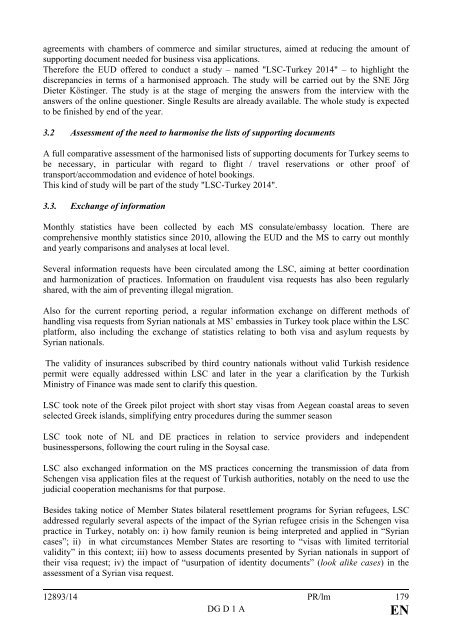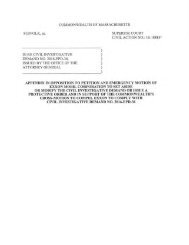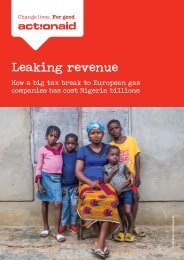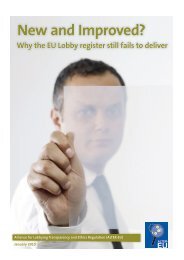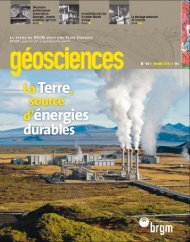eu-com-schengen-coop
eu-com-schengen-coop
eu-com-schengen-coop
You also want an ePaper? Increase the reach of your titles
YUMPU automatically turns print PDFs into web optimized ePapers that Google loves.
agreements with chambers of <strong>com</strong>merce and similar structures, aimed at reducing the amount of<br />
supporting document needed for business visa applications.<br />
Therefore the EUD offered to conduct a study – named "LSC-Turkey 2014" – to highlight the<br />
discrepancies in terms of a harmonised approach. The study will be carried out by the SNE Jörg<br />
Dieter Köstinger. The study is at the stage of merging the answers from the interview with the<br />
answers of the online questioner. Single Results are already available. The whole study is expected<br />
to be finished by end of the year.<br />
3.2 Assessment of the need to harmonise the lists of supporting documents<br />
A full <strong>com</strong>parative assessment of the harmonised lists of supporting documents for Turkey seems to<br />
be necessary, in particular with regard to flight / travel reservations or other proof of<br />
transport/ac<strong>com</strong>modation and evidence of hotel bookings.<br />
This kind of study will be part of the study "LSC-Turkey 2014".<br />
3.3. Exchange of information<br />
Monthly statistics have been collected by each MS consulate/embassy location. There are<br />
<strong>com</strong>prehensive monthly statistics since 2010, allowing the EUD and the MS to carry out monthly<br />
and yearly <strong>com</strong>parisons and analyses at local level.<br />
Several information requests have been circulated among the LSC, aiming at better coordination<br />
and harmonization of practices. Information on fraudulent visa requests has also been regularly<br />
shared, with the aim of preventing illegal migration.<br />
Also for the current reporting period, a regular information exchange on different methods of<br />
handling visa requests from Syrian nationals at MS’ embassies in Turkey took place within the LSC<br />
platform, also including the exchange of statistics relating to both visa and asylum requests by<br />
Syrian nationals.<br />
The validity of insurances subscribed by third country nationals without valid Turkish residence<br />
permit were equally addressed within LSC and later in the year a clarification by the Turkish<br />
Ministry of Finance was made sent to clarify this question.<br />
LSC took note of the Greek pilot project with short stay visas from Aegean coastal areas to seven<br />
selected Greek islands, simplifying entry procedures during the summer season<br />
LSC took note of NL and DE practices in relation to service providers and independent<br />
businesspersons, following the court ruling in the Soysal case.<br />
LSC also exchanged information on the MS practices concerning the transmission of data from<br />
Schengen visa application files at the request of Turkish authorities, notably on the need to use the<br />
judicial <strong>coop</strong>eration mechanisms for that purpose.<br />
Besides taking notice of Member States bilateral resettlement programs for Syrian refugees, LSC<br />
addressed regularly several aspects of the impact of the Syrian refugee crisis in the Schengen visa<br />
practice in Turkey, notably on: i) how family r<strong>eu</strong>nion is being interpreted and applied in “Syrian<br />
cases”; ii) in what circumstances Member States are resorting to “visas with limited territorial<br />
validity” in this context; iii) how to assess documents presented by Syrian nationals in support of<br />
their visa request; iv) the impact of “usurpation of identity documents” (look alike cases) in the<br />
assessment of a Syrian visa request.<br />
12893/14 PR/lm 179<br />
DG D 1 A<br />
EN


